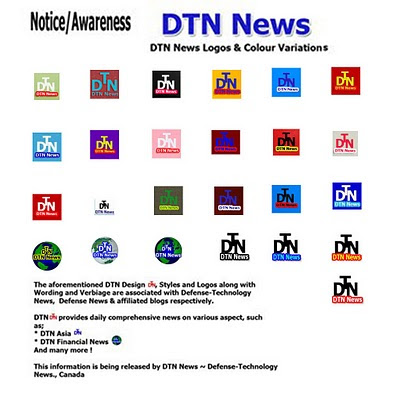 China Testing Its Big Power Options In South America
China Testing Its Big Power Options In South America
(NSI News Source Info) November 25, 2008: Most of China's dealings with Latin American countries are motivated by its pursuit of oil and other resources.
This is only partly true in the case of Cuba, however. The country has unique political, strategic and intelligence value for China. Interestingly, China's military contacts with Cuba bear the secretive characteristics of Soviet-Cuban engagement in the 1960s.
In 2006 the commander of China's People's Liberation Army Second Artillery Corps visited Cuba. His message to the United States was a softer version of the one that Soviet Premier Nikita Khrushchev intended to send when he attempted to put nuclear missiles therein 1962 -- Cuba is not the backyard of the United States.
Since China's current strategy is to reduce friction with the United States, it is unlikely to export missile technologies to Cuba. But should the situation in the Taiwan Strait deteriorate to where China is ready to take military action, it is possible that Beijing may attempt to deter U.S. intervention by playing the Cuban missile card.
On a visit to Cuba in 2000, this author was surprised to find the country's economy already dominated by Chinese goods. From trains and bicycles to household goods, almost everything was made in China. China is Cuba's second-largest trading partner, and total trade between the two countries in 2006 was $1.8 billion.
In 2001 the People's Liberation Army's Chief of General Staff Gen. Fu Quanyou visited Cuba and signed a memorandum of understanding on military cooperation with Cuba. In recent years, exchanges between the top leadership of the Chinese and Cuban militaries have been very frequent.
Regional intelligence analysts believe that these moves are evidence of close intelligence cooperation between the two countries. Cuba has acquired communications and telephone production technologies from China; almost all of Cuba's telephones are made in China. The possibility cannot be excluded that the Third Department of the People's Liberation Army Headquarters of General Staff has established a secret communications monitoring base in Cuba. In addition, the political commissar of China's National Defense University, Zhao Keming, headed a Chinese military delegation to Cuba in 2006, indicating that China has been helping Cuba to train military commanders. In 2007, China's then-Defense Minister Cao Gangchuan once again appeared in Havana.
All these activities suggest active military exchanges between China and Cuba. Yet so far there is no indication that China has shipped to Cuba intact ground forces, navy or air force systems.
China also has a keen interest in Cuba's natural resources, especially nickel. The Chinese military industry has a huge demand for stainless steel but does not have sufficient nickel for the production process. China's eyes have turned to Cuba, which has the world's second-largest nickel reserves.
Further south, Chile is a key transfer station for Chinese military weapons in South America. Chinese ammunition enterprises regularly attend the Santiago Air Show every two years. In recent years China has been using this air show to promote to South American countries a series of weapons systems, including A-100 rocket guns, a variety of satellites and launch vehicles, unmanned aerial vehicles, P-12 SSMs and other weapons systems.
A source from the Chilean air force confirmed to United Press International that in the course of purchasing A-50 AWAC aircraft, China sent high-level military officers to visit Chile and study its Israeli-made early warning radar systems.
Beijing courts Argentina
China has been stepping up its military contacts with Chile, Bolivia and Argentina, in addition to its existing ties with Cuba and Venezuela.
The engagements between the militaries of China and Chile are already quite frequent.
In 2004, Chen Bingde, who was commander-in-chief of China's Jinan military region at the time, visited Chile and inspected the Chilean Ground Force Warfare Academy and Campaign Tactics Training Center. In May this year, Chilean air force Chief Ricardo Ortega visited Beijing. Chilean President Michelle Bachelet Jeria had visited China one month earlier.
China has been placing emphasis on its relations with Chile because of its economic and political strength relative to other Central and South American countries. By demonstrating the benefits of the China-Chile relationship, Beijing hopes to influence those South American countries that maintain diplomatic relations with Taiwan to switch allegiance.
China signed a free trade agreement with Chile in 2006 and surpassed the United States as Chile's top export market last year. In 2007 Chile's exports to China exceeded $10 billion, with copper the main China-bound export item.
China also has an eye on Bolivia's rich natural resources, and relations with that country have been warming. In early 2006, while still the president-elect, Bolivia's current President Evo Morales visited Beijing and invited China to jointly develop Bolivia's natural gas reserves. Bolivia is the second-largest producer of natural gas in South America and has confirmed reserves of 1.38 trillion cubic meters.
Around the same time the international intelligence community began to speculate that China planned to sell Bolivia portable HY5A surface-to-air missiles. In 2007 China transferred 42 vehicles to the Bolivian military free of charge, including 34 trucks, five passenger buses and three crossovers.
In recent years, political and military cooperation between Bolivia and Venezuela has been very close. On May 22, 2008, the two countries signed a memorandum of understanding on military cooperation. Both consider themselves ideological allies of China.
China has been trying to win over Argentina since 2004. Chinese President Hu Jintao visited the country that year, and China announced it would invest $5 billion to develop crude oil in Argentina. Soon after that China began military overtures to the country as well.
In May 2007 Chinese Defense Minister Cao Gangchuan visited Argentina and signed a memorandum of understanding on military cooperation. China began to supply military trucks to Argentina free of charge at that time. It seems that China's military penetration of South America invariably started with the provision of free military trucks.
Argentina also expressed an interest in acquiring China's Z-9 serial helicopters and in reinforcing cooperation with China on the exploration of Antarctica. China has also been assisting Argentina in training military commanders.
To sum up, China is now actively striving to acquire oil and natural gas resources in Central and South America. It is accomplishing this through the sale of weapons, with the added advantage of strengthening its political and military influence in the region, particularly among left-leaning regimes.

















No comments:
Post a Comment